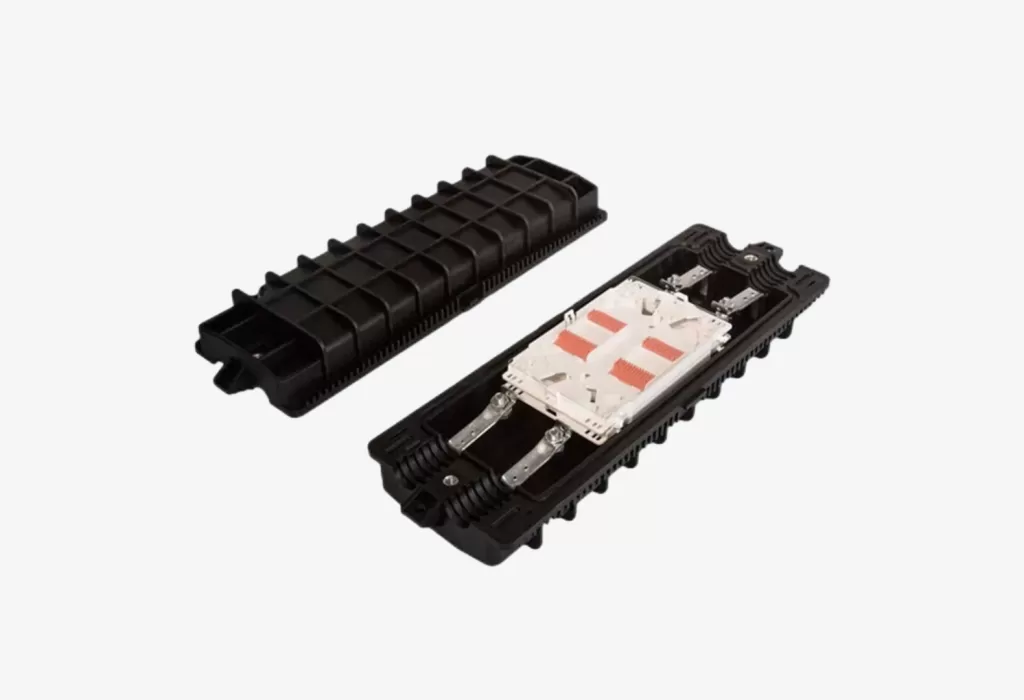
Horizontal fiber optic splice closures, also known as optical cable splice boxes, play an important role in the communications industry. It is a must-have device in the construction of optical cable line projects. It is used to connect two or more optical cables together and provide complete protection for the optical fiber splices.
Functions of horizontal fiber optic splice closures:
Protect the optical fiber splicing part: The horizontal fiber optic splice closure can provide good protection for the optical fiber splicing part and prevent it from being damaged by external factors.
Enhance the mechanical strength of the optical cable: The horizontal fiber optic splice closure has excellent mechanical strength and can withstand external forces such as stretching and bending of the optical cable, thereby enhancing the stability of the optical cable line.
Flame retardant and waterproof: The horizontal fiber optic splice closure has good flame retardant and waterproof properties, which can prevent damage from fire, water and other external factors.
Easy maintenance: The horizontal fiber optic splice closure has a reasonable structural design, making it convenient for optical fiber splicing and maintenance.
Internal structure of horizontal fiber optic splice closures:
Support frame: It is the main body of internal components, providing support and protection.
Optical cable fixing device: used to fix the optical cable to the base and optical cable reinforcement. It includes steps such as fixing the cable reinforcement core inside, clamping and fixing the optical cable and the support frame, and sealing and fixing the optical cable and the incoming and outgoing cables of the junction box with a heat shrink sheath.
Optical fiber placement device: can store optical fiber connectors and remaining optical fibers in an orderly manner. Among them, the receiving tray can be four layers with large capacity and can be adjusted according to the number of cores connected by the optical cable. The length of the remaining optical fiber should be no less than 1 meter, and the diameter of the remaining optical fiber reel should be no less than 35mm.
Protection of optical fiber connectors: The heat-shrunk protective sleeve can also be fixed with silicone and placed on the fiber core fixing clip in the receiving tray.
Sealing of the optical cable and the junction box: Use emery cloth to polish the connection between the junction box and the optical cable at the inlet of the optical cable and the base, wipe the polished area with detergent, affix aluminum foil, and then put the heat shrink tube on the junction box. At the wire inlet of the wire box, use a torch to slowly heat it from the middle to both ends to completely shrink the entire heat shrink tube.
Shell: Provides protection and has good flame retardant and waterproof properties.
In general, the structural design of the horizontal fiber optic splice closure fully considers its protection of internal components and convenience of use. However, it should be noted that if the box body is damaged or water leaks due to various weather conditions, the internal optical cable will inevitably be damaged. Therefore, it is very important to correctly use and maintain horizontal fiber optic splice closures.
